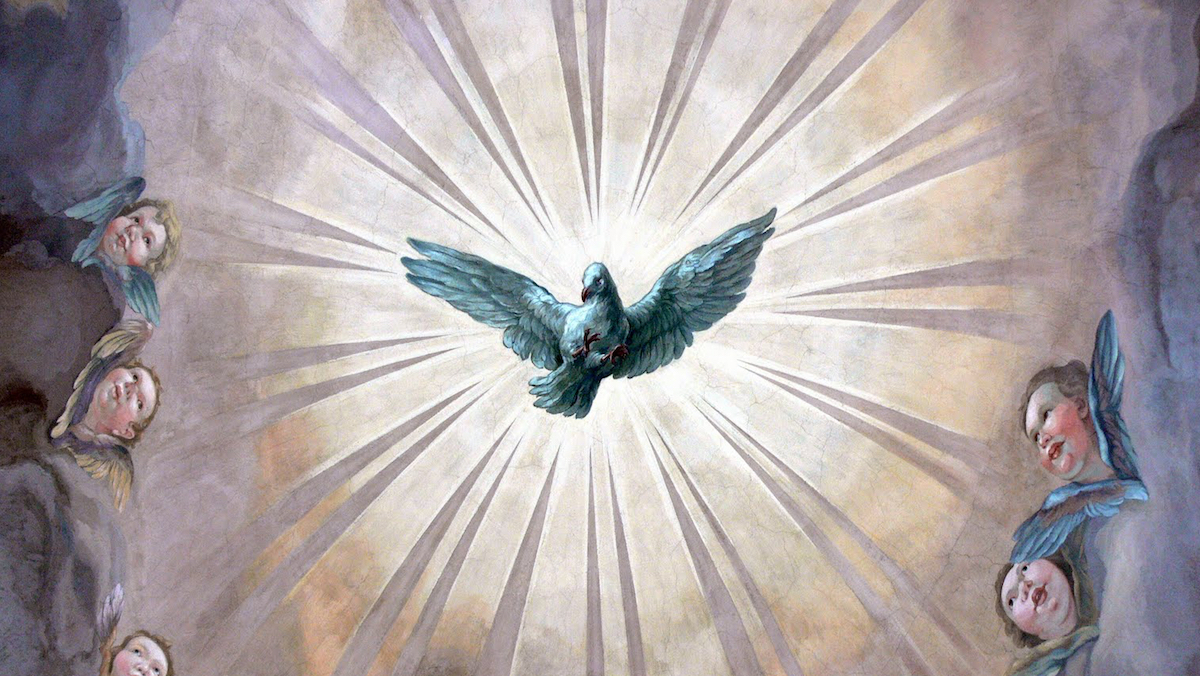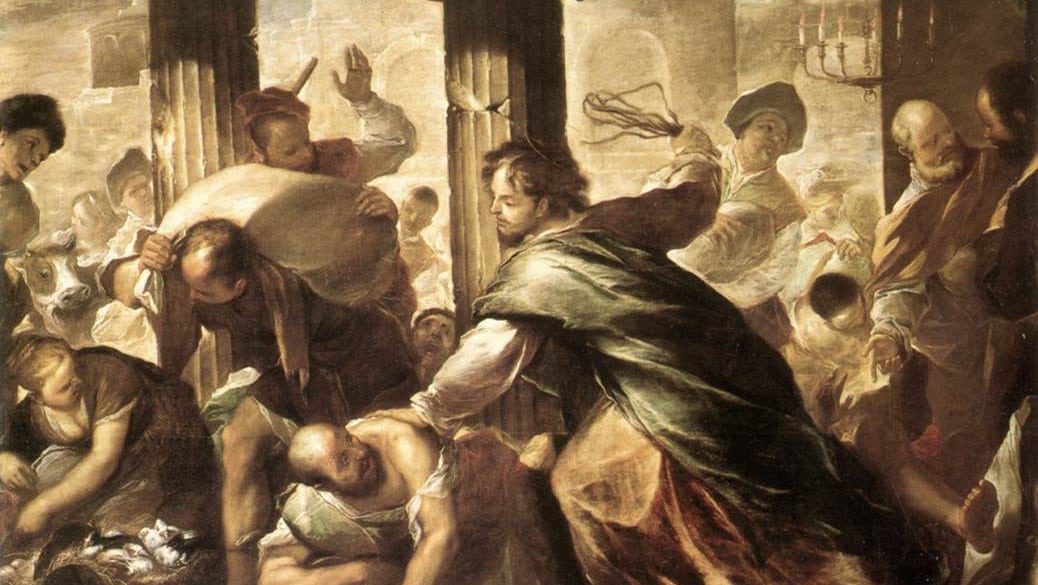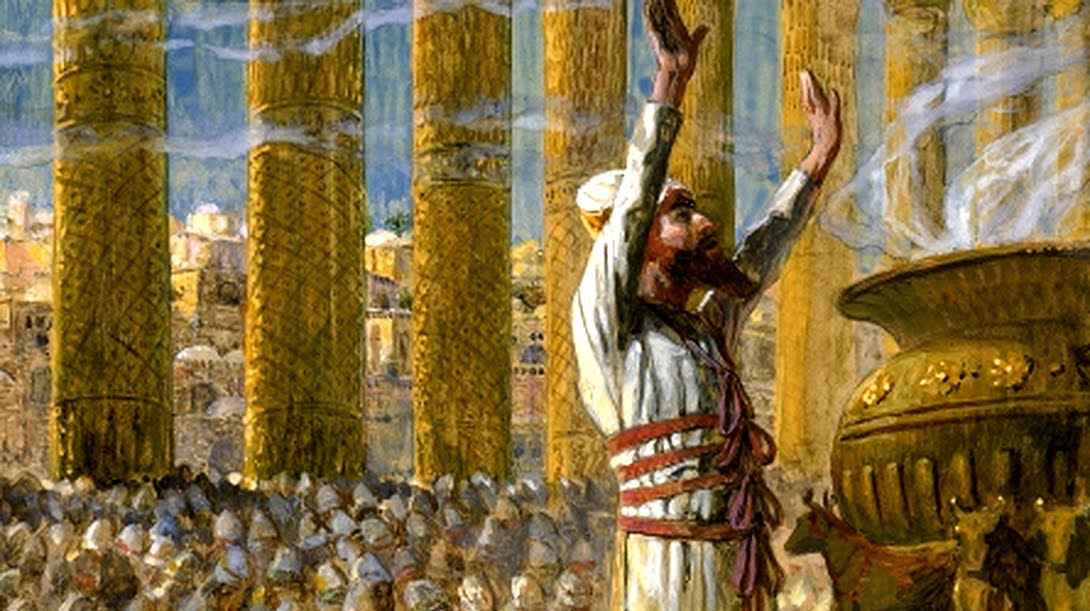If I asked you to quote the Bible verse 3:16, what would you say? Would you be able to recite 3:16 from memory? OK, if you do not know the verse by heart, let me help you out.
“Do you not know that you are the temple of God, and that the Spirit of God dwells in you?”
(1 Cor 3:16)
“For the temple of God, which you are, is holy.” (1 Cor 3:17); “For we are the temple of the living God.”(2 Cor 6:16) This got me thinking. St. Paul is famous for his teaching on each of us being members of the Body of Christ. What does he mean when he says that we are also temples? Does being a temple have anything to do with our being the members of the “body” of Christ?
In the Gospel according to John, Jesus refers to refers to himself as several different things. He says I am the bread of life, the light of the world, the good shepherd, the door, the resurrection, the life, the true vine, the way, and the truth. In Jn 2:19-21, Jesus refers to himself as a temple. It only makes sense, then, that Paul would tell us that we too are temples. If Jesus is a temple, and we are his body, then we too are temples.
What is the significance of Jesus referring to himself as a temple? I think the notion may be lost on us as Christians 20 centuries after the Jewish temple was destroyed by the Romans, in 70 A.D. The Jewish people have not had a temple since that time. However, we Christians have a temple, and that temple is Jesus Christ and we ourselves, joined to him in the mystical body of Christ.
For the Jewish people of the time when Jesus walked the Earth, the temple in Jerusalem was the epicenter of their religion. Not only of religion, but the temple and Jerusalem were defining elements of who they were as a people, as God’s chosen people. The temple was where God dwelt on Earth. From the beginning of the cult of sacrifice and worship in the tent erected by Moses until the last stone was thrown over by the Romans, this was where the presence of God was experienced. “Then the cloud covered the meeting tent, and the glory of the Lord filled the Dwelling. “ (Ex 40:34)
The temple was the center of the cult of sacrifice that God gave to Moses in the book of Leviticus. Solomon built the temple in Jerusalem, making it a permanent fixture instead of a mobile tent. Now Mt. Zion, Jerusalem, was where the presence of God dwelt and all of Jewish life was centered and focused on Jerusalem. Each synagogue was built so that the prayers being offered were in the direction of the Temple. “But I through the abundance of thy steadfast love will enter thy house, I will worship toward thy holy temple in the fear of thee”( Ps 5:7). There was only one place where the cultic sacrifices could be offered; the temple in Jerusalem.” Then the LORD appeared to Solomon in the night and said to him: “I have heard your prayer, and have chosen this place for myself as a house of sacrifice. (2Ch 7:12 RSV) When you needed to offer any sacrifice, for the dedication of a child, for cleansing or sin offerings, all must be offered at the temple in Jerusalem. The temple, in its essence, is where sacrifice is offered.
One of the charges leveled against Jesus was Blasphemy. In the passion accounts, several witnesses recalled Jesus’ claim that he could destroy the temple and rebuild it in three days. In Mt 12:6, Jesus says of himself that there is something greater than the temple here. To the Jewish authorities, to have someone claim to be greater than the temple, where God dwells among his people, the center of their religious life and the defining characteristic of who they are as God’s chosen people was blasphemy. Jesus placed himself above the temple, above God’s dwelling place. What could be above God’s dwelling place except God himself?
What is the significance of the temple being the place of sacrifice? In order to have sacrifice, there were some essential elements. Take away anyone of those elements and you no longer have a sacrifice. Firstly, you need an altar, or a place from which to offer the sacrifice, this was the temple. Second, you need a priest to offer the sacrifice; the essential duty of a priest in the Jewish religion was the offering of sacrifice.” For every high priest chosen from among men is appointed to act on behalf of men in relation to God, to offer gifts and sacrifices for sins.”(Heb 5:1) The third element of sacrifice is the victim being offered. Lastly, you must have God to receive the victim being sacrificed, by the priest, from the temple. The most significant sacrifice was offered once per year on the Day of Atonement. Only the high priest would offer this sacrifice, and only on that one day of the year could the high priest enter into the Holy of Holies, the inner most sacred dwelling place of God. “but into the second only the high priest goes, and he but once a year, and not without taking blood which he offers for himself and for the errors of the people.”(Heb 9:7) In fact, the high priest would enter the Holy of Holies with a rope tied around him, just in case while being in the presence of God, he might be struck dead; should that happen, the other attending priests could pull his lifeless body out from the inner sanctuary.
Consider what was happening with Jesus on the cross. All of the elements of sacrifice were present. There was the temple, Jesus incarnate, Jesus, in his divinity, God made man, the true dwelling of God among his people “And the Word became flesh and dwelt among us”(Jn 1:14). In Jesus was the true high priest “being designated by God a high priest after the order of Melchizedek”(Heb 5:10). In Jesus is the victim being offered ,”Behold the Lamb of God”(John 1:36) testified the Baptist, “when Christ had offered for all time a single sacrifice for sins, he sat down at the right hand of God”(Heb 10:12) Finally, Jesus offers the sacrifice to God “I saw a Lamb standing, as though it had been slain”(Rev 5:6)” and in his divinity, being God, Jesus, in his person not only offered the sacrifice of atonement, not only did he pray to the Father for our salvation, Jesus is the recipient of the sacrifice. Jesus IS prayer. Jesus IS the temple, priest, victim and God to whom the sacrifice is being offered. His whole being, body and soul and divinity IS prayer. By becoming incarnate, by taking on a body, Jesus transformed the body, the material aspect of man’s nature into prayer.
After you let that sink in consider this. We too are temples, according to St. Paul. What does that mean, then to be a temple? A temple is the place of God’s dwelling, and by virtue of our baptism, we have the life of God, the Spirit of God dwelling within us. The temple is the place of sacrifice. We are called to be sacrifice. “Then Jesus told his disciples, “If any man would come after me, let him deny himself and take up his cross and follow me.”(Mt 16:24). “then heirs, heirs of God and fellow heirs with Christ, provided we suffer with him in order that we may also be glorified with him”(Rom 8:17) “Now I rejoice in my sufferings for your sake, and in my flesh I complete what is lacking in Christ’s afflictions for the sake of his body, that is, the church,(Col 1:24). That is not to say that Christ’s sacrifice was not sufficient, it was. Paul is calling us to unite our sufferings to those of Christ for the continuing on going salvation of the Church, made up of all of the members of his body. Paul is calling us to be temples.
As a temple, Jesus IS the perfection of prayer, perfect unity of body, mind and soul. That is what we will experience in Heaven. “What no eye has seen, nor ear heard, nor the heart of man conceived, what God has prepared for those who love him,”(1 Cor 2:9). We will have a perfect union of our word and our glorified body partaking, as the Body of Christ, in the life of the trinity. We too are called to BE prayer, and perfected in Heaven, that is what we will be.
As the Franciscan sister and author, Ilia Delio, OSF, so eloquently teaches “When I pray, when I breathe with God, I become part of the intimacy of God’s life. The Spirit of God who breathes within me draws me into the circle of love between the Father and Son. Through prayer I am drawn into the dance of the Trinity.” (Franciscan Prayer, Ilia Delio, St. Anthony Messenger Press, 2004)







